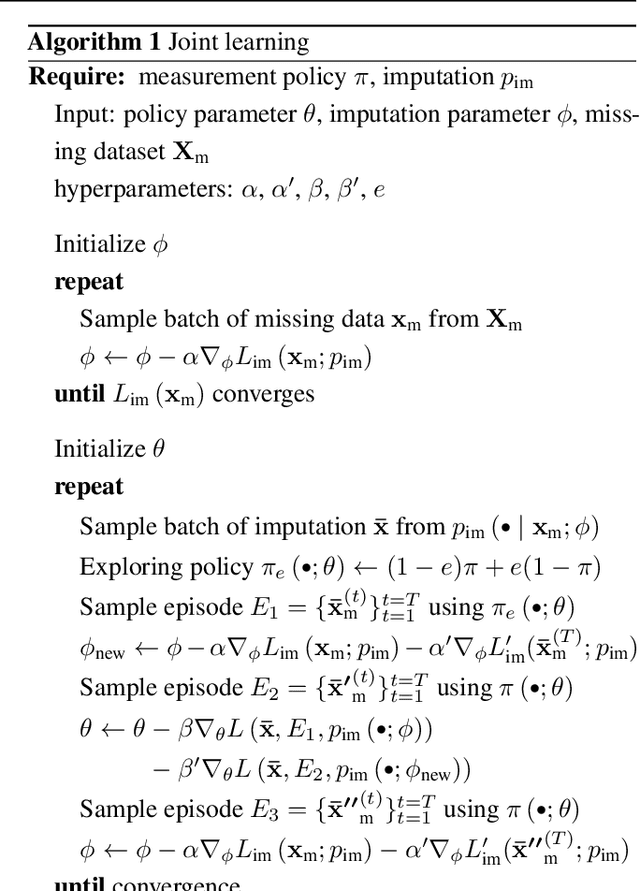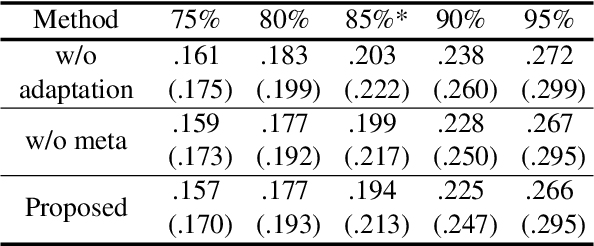Controllable Missingness from Uncontrollable Missingness: Joint Learning Measurement Policy and Imputation
Paper and Code
Apr 08, 2022



Due to the cost or interference of measurement, we need to control measurement system. Assuming that each variable can be measured sequentially, there exists optimal policy choosing next measurement for the former observations. Though optimal measurement policy is actually dependent on the goal of measurement, we mainly focus on retrieving complete data, so called as imputation. Also, we adapt the imputation method to missingness varying with measurement policy. However, learning measurement policy and imputation requires complete data which is impossible to be observed, unfortunately. To tackle this problem, we propose a data generation method and joint learning algorithm. The main idea is that 1) the data generation method is inherited by imputation method, and 2) the adaptation of imputation encourages measurement policy to learn more than individual learning. We implemented some variations of proposed algorithm for two different datasets and various missing rates. From the experimental results, we demonstrate that our algorithm is generally applicable and outperforms baseline methods.
 Add to Chrome
Add to Chrome Add to Firefox
Add to Firefox Add to Edge
Add to Edge